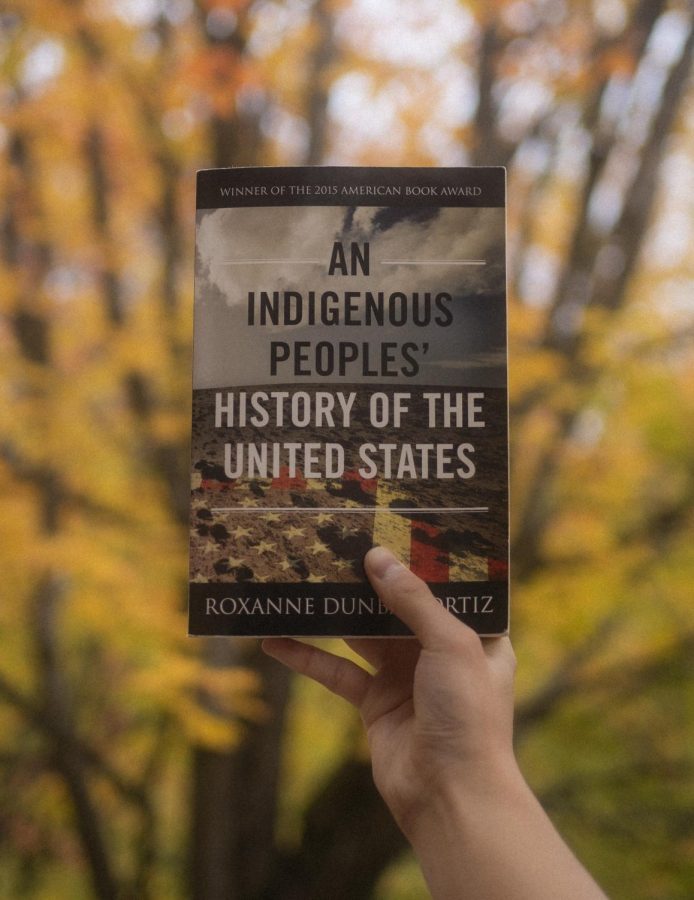Pilgrims, Pumpkin Pie, and Perspectives: Grappling with Thanksgiving’s Past
When somebody mentions Thanksgiving, what comes to mind? For some, it’s the smell of turkey and pumpkin pie wafting in from the kitchen amidst the collective laughter and conversations occurring around the dinner table. Or it’s the uncles, grandfathers, and fathers of the family passed out in armchairs on what my mom has deemed “turkey hangover”. Or it’s the sight of a flock of children gathered in front of the TV, engrossed in the colorful balloons which float by, hands unknowingly outstretched towards them in a fruitless attempt to touch them. However, for others it’s a painful reminder of this country’s tumultuous past concerning Native American and white settler relations. I have always loved Thanksgiving: the way the holiday so seamlessly inspires warmth in me, the time with my family, the many traditions I partake in (not to mention the five days off from school). Nevertheless, as a direct descendant of Thomas Rogers (who sailed here on the Mayflower in 1620), I have always felt a tinge of discomfort in the weeks leading up to Thanksgiving as I consider the actions of my ancestors and the implications of the holiday, a sentiment I think many others share — torn between the love for Thanksgiving and its troubled origins.
Katherine Piper, an Upper School U.S. history teacher, explains that Thanksgiving and its history will definitely be something her class touches on. She intends to assign excerpts from Roxanne Dunbar-Ortiz’s An Indigenous People’s History of the United States. Moreover, she will discuss how the holiday fits into the U.S. history classes’ theme of introducing the counter narrative that refutes false collective memories, such as the Thanksgiving myth, that are rooted in American exceptionalism. Ms. Piper concludes by emphasizing the need to consider the diverse perspectives that make up American history; she centers her class around asking the key question “What is the story of America?”. The goal is to “[have] students gain and make sense of their own story…[and] exposure to a lot of different narratives,” says Ms. Piper.
While Lakeside’s Native American Student Alliance (NASA) did not respond to a request for comment, these above sentiments were reflected in the Tatler poll. One response nicely summarizes most of the greater student body’s opinions: we should “explain the history of Thanksgiving in an unbiased and accurate (as possible) way, but we can still celebrate Thanksgiving as a part of tradition and acknowledge the good parts of it.”
In spite of the contentious history of Thanksgiving, much of the Lakeside community maintains that celebrating the holiday is acceptable on the condition that the history department and administration ensures that they are approaching Thanksgiving objectively. Furthermore, students want the school to continue to do its part to diffuse myriad perspectives and narratives, especially those of historically marginalized communities, when considering the holiday and other events.
Notwithstanding, there are guaranteed to be dissenting opinions to this. However, through it all, it is important to keep in mind that as generations evolve, so do traditions, and maybe it’s simply time we place a greater emphasis on the “gratitude” and “family” aspects to the holiday — continuing to recognize Thanksgiving’s past, but focussing more on the lessons it teaches us and how they can be positively channeled towards the creation of a better future for all.
Conceitedly, his favorite month is December
As his birthday falls in December 2006
And even more, his favorite holiday is that of December 25
As...

